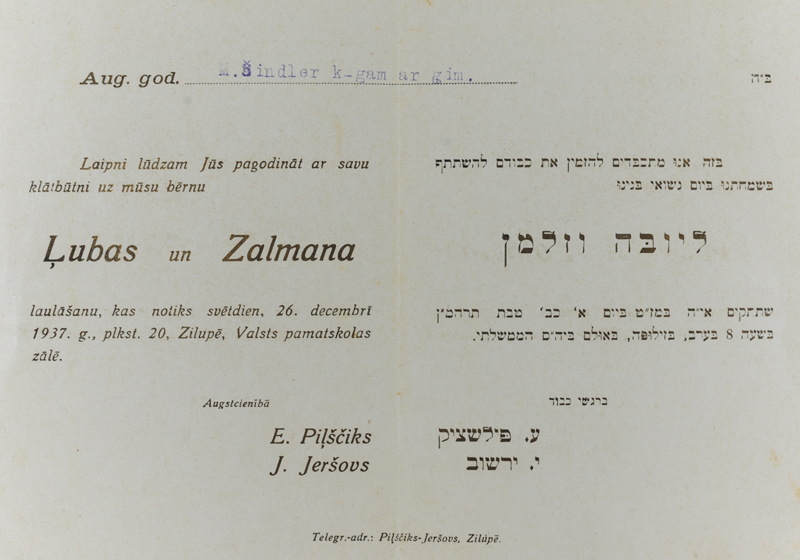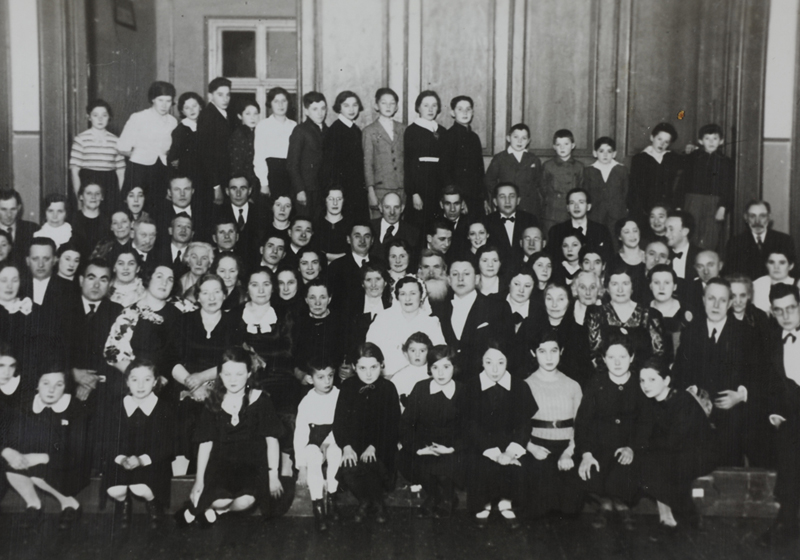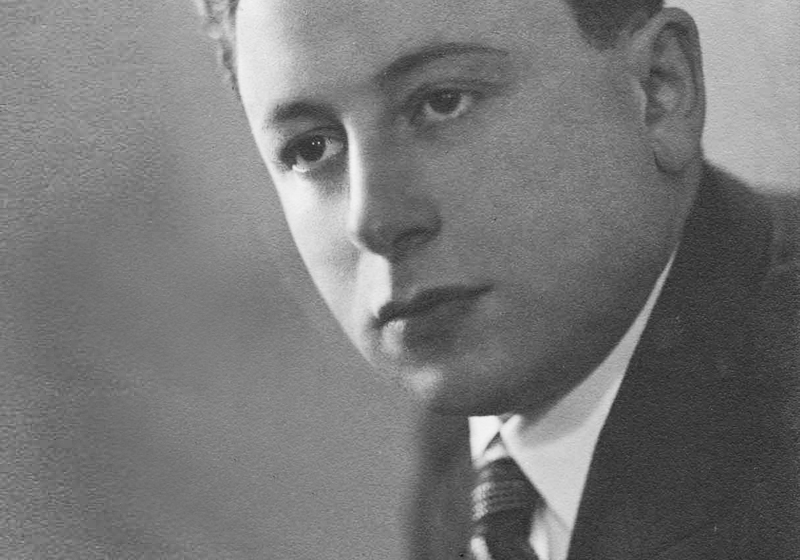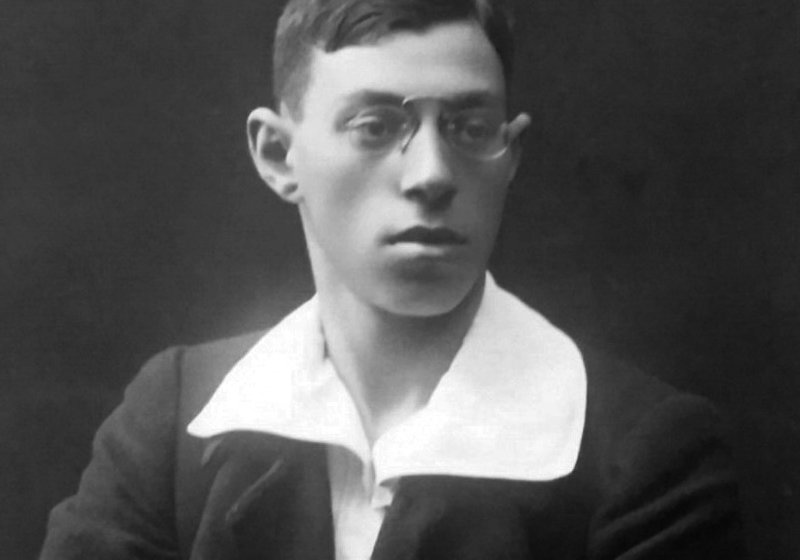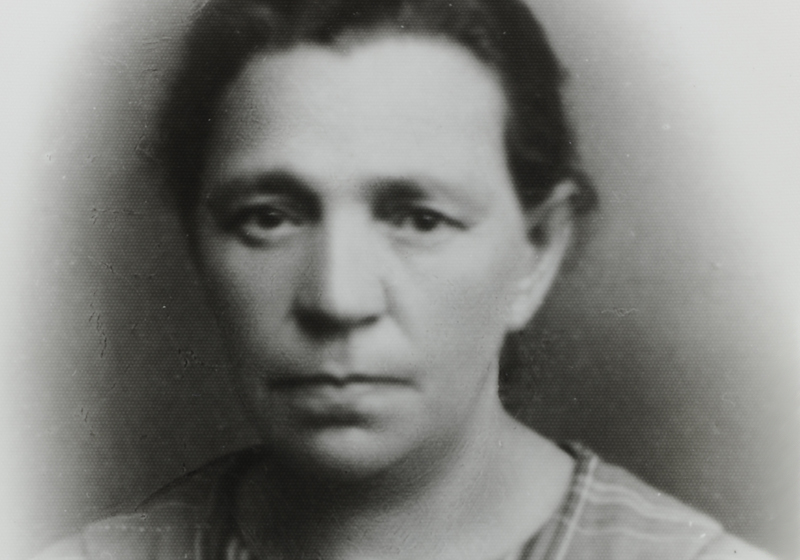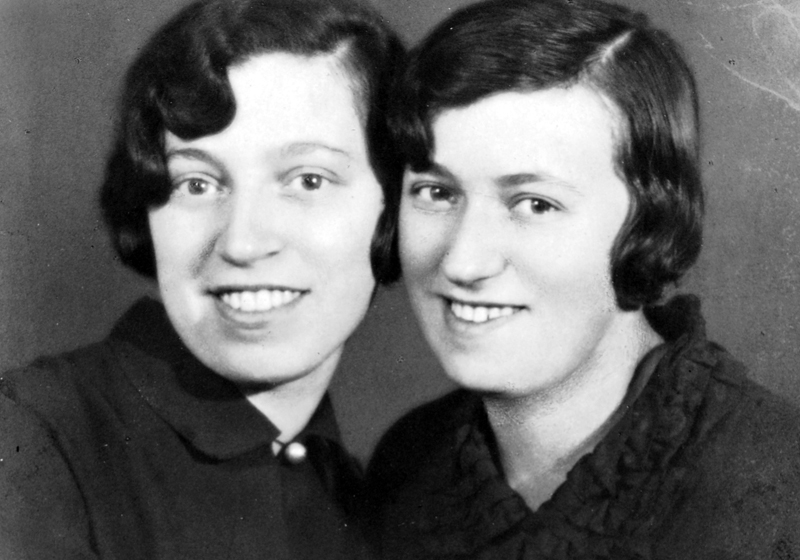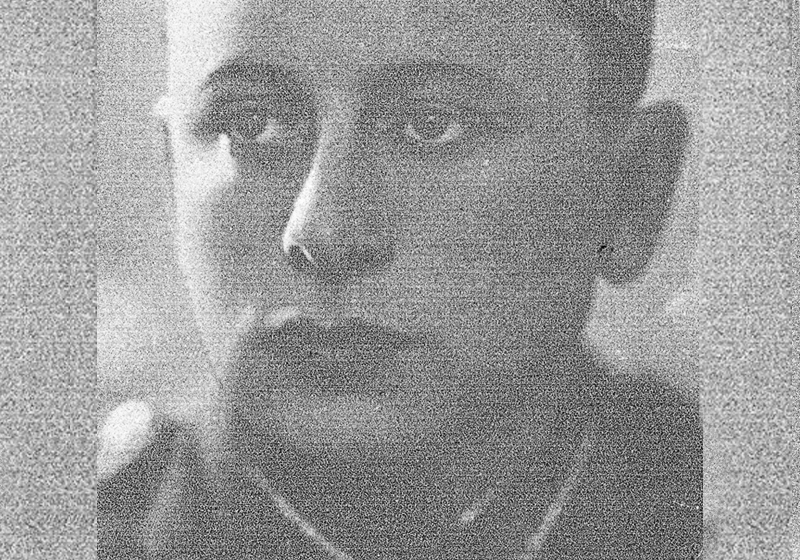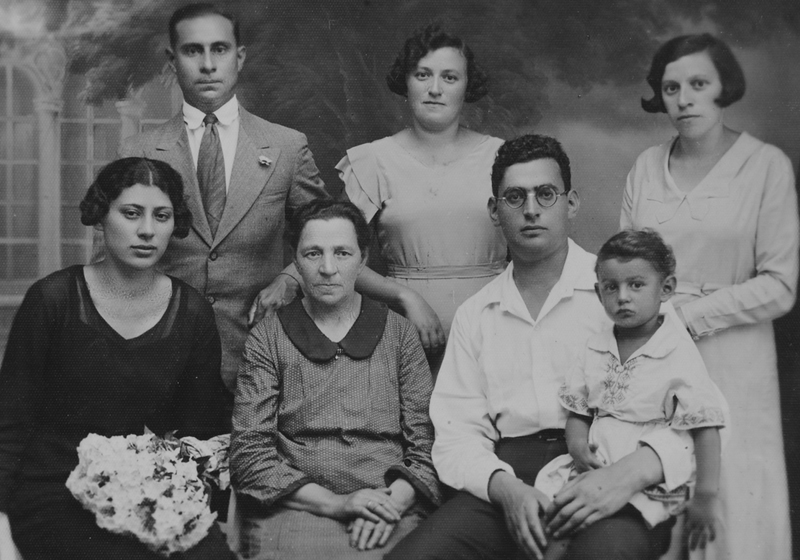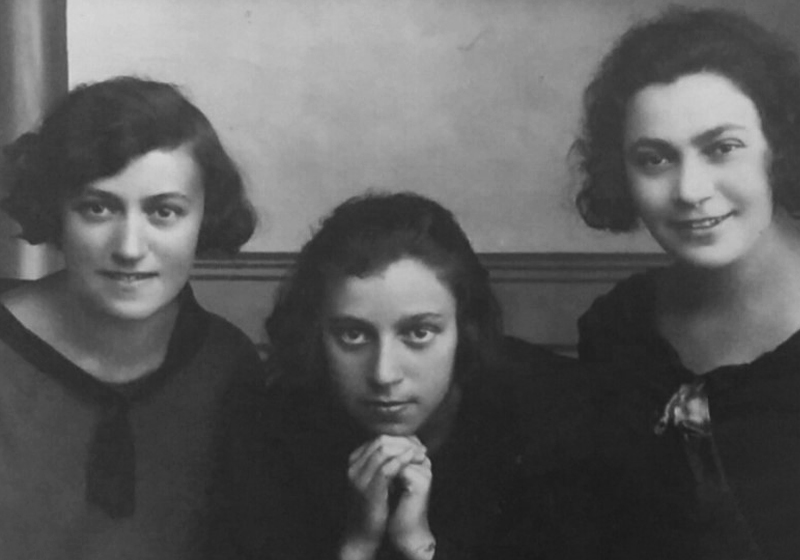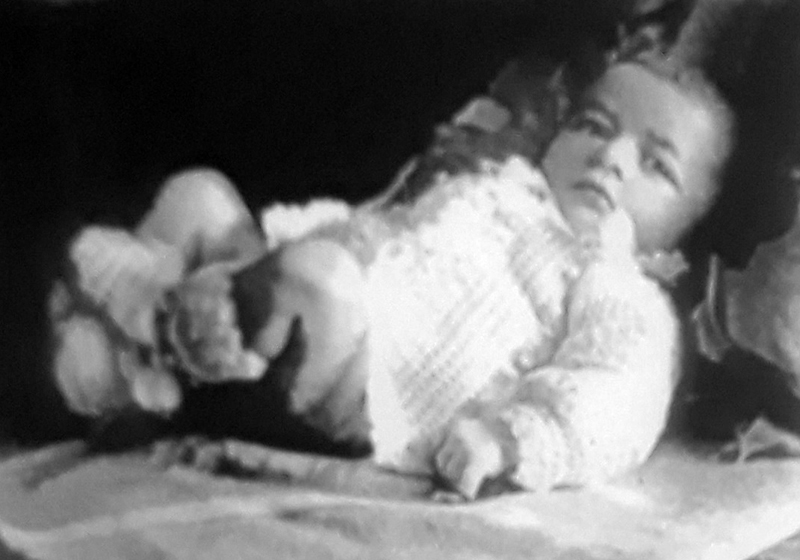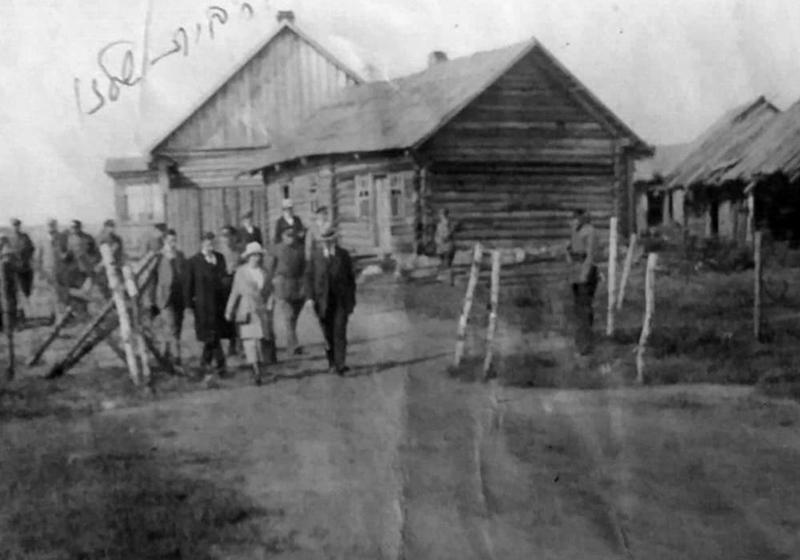The Onset of Mass Murder
The Fate of Jewish Families in 1941
The Jershov and Pilschik Families - Zilupe, Latvia
Zalman Jershov (Jeršov), the firstborn son of Yaakov and Yehudit, was born in Ludza, Latvia in 1907. He served in the Latvian Army, and was a teacher of mathematics and Hebrew at the Jewish school in Zilupe. His mother Yehudit was principal at the same school. He had a brother, Yisrael (b. 1911), and three sisters, Mira, Rivka and Sarah. Yaakov passed away, and Mira and Rivka immigrated to Eretz Israel (Mandatory Palestine) before the war. There, Mira married Yehuda Frank and Rivka married Amnon Haramti (Hochman).
Luba-Lyuba Pilschik (Piļššiks), daughter of Yosef and Etel née Elber, was born in 1911 in Raksina, Latvia. Her eldest brother Moshe left Zilupe and moved to Leningrad. Her father Yosef passed away in 1928, and the same year, her sister Frieda immigrated to Eretz Israel and eventually married Meir Schindler, from Satanov, Ukraine. Her second sister Sima married Fischel Weissman, a Hebrew teacher, and they moved to Riga, where they had two sons, Assaf-Yosef (b. 1932) and Manoah (b. 1934). Sima, Fischel and the boys would spend their summer vacations in Zilupe with the family.
In 1935, 471 Jews lived in Zilupe, about one third of the total population. In 1938, Zalman and Luba had a baby boy, Yaakov. They lived together with Zalman's widowed mother, Yehudit, surrounded by family members: his brother Yisrael, a tailor, YIsrael's wife Doba, and their son Yaakov (b. 1940), his sister Sarah, and Luba's widowed mother Etel.
In June 1940, Latvia was annexed to the USSR and came under Soviet rule. On 27 June, Zilupe was bombed by the Germans. They bombarded the railway station, hitting trains full of refugees and soldiers, as well as a train packed with ammunition. The railway station and surrounding area were badly damaged, and the town center was completely destroyed. Stores and apartments, many of them belonging to Jews, went up in flames. The synagogue was burned down, as were other community buildings. Many Jews were left homeless. Many residents fled the town and dispersed amongst the nearby forests and villages. Some crossed the border and succeeded in reaching the Soviet Union, among them Sarah, Zalman's sister. A few days later, families with small children, pregnant women, elderly and sick people returned to the town. Sima and Fischel, who were in Riga, managed to escape together with their sons and pupils at the school where Fischel taught. They wandered the streets of the Soviet Union, and reached Siberia.
In late June 1941, Zalman and Luba had another son, whose name is unknown. Several days later, on 4 July, the Germans entered Zilupe, and on 15 July, the Jews were gathered in the market square with their belongings. They were ordered to hand over their house keys to the authorities, while they themselves - some 200 Jews - were housed in the Jewish school building. They were forced to wear the Yellow Star on their clothes, they were forbidden to walk on the sidewalks, and they were taken for forced labor each day. The men worked clearing debris, repairing damage caused by the bombing and fires, and doing heavy lifting. The women cleaned the offices of the Germans, the police, and the city authorities. Several days after the Jews were gathered in the market square, Latvian locals – "The Home Guard Militia" (Omakaitse) – took a group of Jewish men from Zilupe to a grove of trees near the village of Raksina, some 200m outside the town, shot them to death and cast their bodies into pits. Between August and September 1941, all the Jews still remaining in Zilupe were taken in groups of 20 in the direction of Ludze, 1.5 km from Zilupe, and were shot to death near the village of Zabolocki. Their corpses were thrown into pits that had been dug for the purpose.
Zalman Jershov, his wife Luba, their three-year-old son Yaakov and their two-month-old baby boy were in one of these groups. On their way to the killing pit, one of the Latvian policemen who knew Zalman, having served together in the Latvian Army, offered to pull him out of the line and to save only him. Zalman refused, and continued walking with his wife, his sons and the other Jews, and was shot together with them. His brother Yisrael, his wife Doba and their little son Yaakov were also murdered.
Moshe Pilschik perished during the siege of Leningrad. After the war, Fischel and Sima returned to Riga, and in 1948, their third son, Atael was born, named after his grandmother Etel. Fischel passed away in Riga, and in 1971, Sima, her son Manoah, his wife and their two daughters immigrated to Israel. Manoah's brother, Yosef, immigrated a year later. Etael immigrated to Israel, and then moved to Canada. Sarah Jershov emigrated from Riga to Israel in 1964.
In 2006, Manoah Weissman submitted Pages of Testimony to Yad Vashem in memory of his maternal aunt, Luba, her son Yaakov, her baby son and his grandmother Etel Pilschik. In 2007, Mira Frank (Jershov) submitted Pages of Testimony in memory of her mother Yehudit, and her brothers Zalman and Yisrael. In 2014, Yosef Weissman, Luba's nephew, donated documents and family photographs to Yad Vashem as part of the national project "Gathering the Fragments", including Zalman and Luba's wedding invitation, featured in this exhibition, and the wedding photograph depicting Yosef and Manoah with the bride, groom and dozens of guests.

